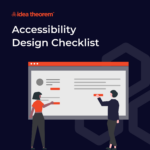In today’s fast-changing tech world, artificial intelligence (AI) is a key tool for businesses wanting to stay ahead. However, one of the key decisions organizations face is choosing between custom AI solutions and off-the-shelf AI. Both options offer distinct advantages and challenges, and understanding these differences can help in making an informed choice.
Custom AI solutions are made to fit the specific needs and challenges of a business or industry. These solutions are developed from the ground up, taking into account the specific requirements and objectives of the organization.
Advantages of Custom AI
Tailored Fit: Custom AI is built to address the specific needs of a business. This means it can integrate seamlessly with existing processes and systems, offering a personalized experience.
Flexibility: Custom solutions offer the flexibility to change as the business grows or as market conditions shift. This makes them great for long-term plans.
Competitive Advantage: By creating unique AI features, businesses can gain a competitive advantage that standard solutions might not offer.
Data Privacy and Security: Custom AI solutions allow businesses to maintain control over their data, ensuring compliance with privacy regulations and enhancing security.
Challenges of Custom AI
Cost: Developing a custom AI solution can be expensive due to the resources required for development and implementation.
Time-Consuming: The development process can be lengthy, requiring significant time investment before the solution is operational.
Resource Intensive: Requires a team of skilled developers and data scientists to build and maintain the solution.
Exploring Off-the-Shelf AI
Off-the-shelf AI solutions are ready-made tools. Businesses can easily buy and use them. These solutions are designed to cater to a broad range of industries and applications.
Advantages of Off-the-Shelf AI
Cost-Effective: Generally more affordable than custom solutions, as they spread development costs across multiple users.
Quick Deployment: These solutions can be implemented quickly, enabling businesses to start realizing benefits almost immediately.
Ease of Use: Ready-made AI tools are easy to use. They need little technical skill, so more people can access them.
Continuous Updates: Providers often offer regular updates and improvements, ensuring the solution remains current and effective.
Challenges of Off-the-Shelf AI
Limited Customization: These solutions might not meet the unique needs of every business. This can lead to gaps in functionality.
Integration Issues: Compatibility with existing systems can be a challenge, requiring additional adjustments or workarounds.
Data Privacy Concerns: Using third-party solutions may involve sharing sensitive data, raising privacy and security concerns.
Key Considerations in Choosing Between Custom and Off-the-Shelf AI
When deciding between custom and off-the-shelf AI, businesses should consider several factors:
Business Needs and Objectives
Understanding the specific goals and requirements of your organization is crucial. If your needs are highly specific and require unique solutions, custom AI may be the better choice. For more generalized applications, off-the-shelf AI might suffice.
Budget Constraints
Consider the financial resources available for AI implementation. Custom solutions usually need a bigger upfront investment. In contrast, off-the-shelf options can be more budget-friendly.
Timeframe for Deployment
If time is of the essence, off-the-shelf AI can provide a quicker route to implementation. Custom solutions, while potentially more effective in the long run, require more time to develop and deploy.
Expertise and Resources
Evaluate the technical expertise and resources available within your organization. Custom AI needs skilled workers for development and maintenance. In contrast, off-the-shelf solutions can often be managed with less specialized knowledge.
Long-term Strategy
Consider the long-term vision for your AI strategy. Custom solutions offer flexibility and scalability, making them suitable for businesses with evolving needs. Off-the-shelf AI can be ideal for immediate needs or when the application scope is limited.
Real-World Examples
Custom AI in Action
A prominent example of custom AI is Netflix’s recommendation system. Tailored specifically for their platform, this AI analyzes user data to provide personalized content suggestions, enhancing user engagement and satisfaction.
Off-the-Shelf AI in Use
HubSpot, a leading CRM platform, uses off-the-shelf AI to analyze customer interactions and improve sales processes. This approach allows HubSpot to efficiently leverage AI without the need for extensive in-house development.
Conclusion
Both custom and off-the-shelf AI solutions have their place in the business world, each offering distinct benefits and challenges. By thinking about your organization’s needs, budget, time, and goals, you can make a smart choice that fits your plans.
Choosing a custom solution or a ready-made tool can help you add AI to your operations. This can create new chances for innovation and growth.






